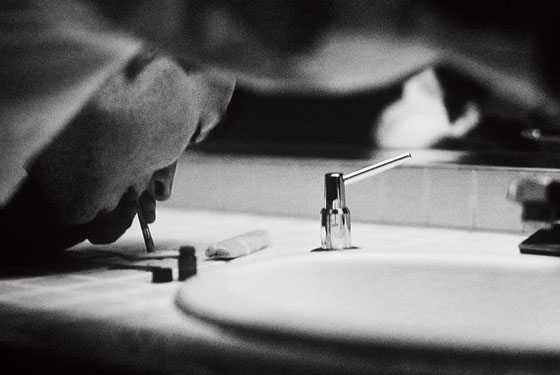
Jay McInerney makes a fascinating statement about three quarters of the way through his New York magazine article "Yuppies in Eden," in which he compares yuppies to hippies. While this may seem to be a completely ludicrous claim, at first glance they seem like polar opposites, but both groups were baby boomers (the post World-War II baby boom lasted from 1946 to 1964 in the United States) and both were rebelling against their parents, except instead of challenging their parents political beliefs they were challenging their tastes and budget constraints. They were both born as a reaction to growing up in suburbia. This particular statement summed up the whole article for me, it illuminated aspects of yuppie life and culture that I never realised were important. Perhaps the best example in pop culture of this is the character of Alex P. Keaton from Family Ties, played by Michael J. Fox, a proto-yuppie, who's quest for wealth and success clashes with his hippie parents beliefs.
The article also highlights fitness as being an integral part of yuppie culture, which I'd never realised before, with McInerney stating that "it's hard to believe, but there weren't all that many gyms in Manhattan in 1979," which is crazy to think because sitting here in 2014 it's weird to imagine a world that fitness isn't an important part of life and culture. He states that achieving perfection through physical fitness and making piles of money were the twin goals of the yuppies, they wanted to be better than everyone else is his suggestion. These goals, according to McInerney, were embodied in the baby jogger, an invention of the 80s that combined spending quality time with children, fitness and having a technologically advanced, ridiculously expensive thing everyone else could admire.

While this is a modern article, written in 2008 as part of the 40th anniversary of New York magazine, the fact that McInerney was living in New York City during the invasion of the Yuppies, he at one point recalls his first sighting of a "yuppie," and the fact that his 1984 novel Bright Lights, Big City depicts yuppie life, means that the article is able to retrospectively analyse yuppie culture, and McInerney is able to describe the good, as well as the bad of this culture.
More often than not yuppies have been portrayed in a negative light, as consumed by greed and morally corrupt, but McInerney does highlight the positive impact that the yuppies had on NYC in the 1980s, with his description of 70s NYC coming across as an almost dystopian, nightmare city, with muggings being seen as a right of passage, but with the economic boom of the early 80s, which brought the flood of yuppies into the city, who intern brought gentrification to NYC, redeveloping once dangerous and forgotten neighbourhoods, and probably saving the city from a painfully slow death, reinvigorating it with new life. Aside from the visions of the city portrayed in films like Taxi Driver, its hard for me to imagine what the city that McInerney described was like considering the booming metropolis NYC has become.
While the yuppie of the 1980s has long since died, their culture has lived on, in McInerney's words "the pods have taken over the world" and the worship of designer brands and labels, connoissuership and the pursuit of physical perfection through fitness have become hallmarks of our society, the legacy of the yuppies.
No comments:
Post a Comment